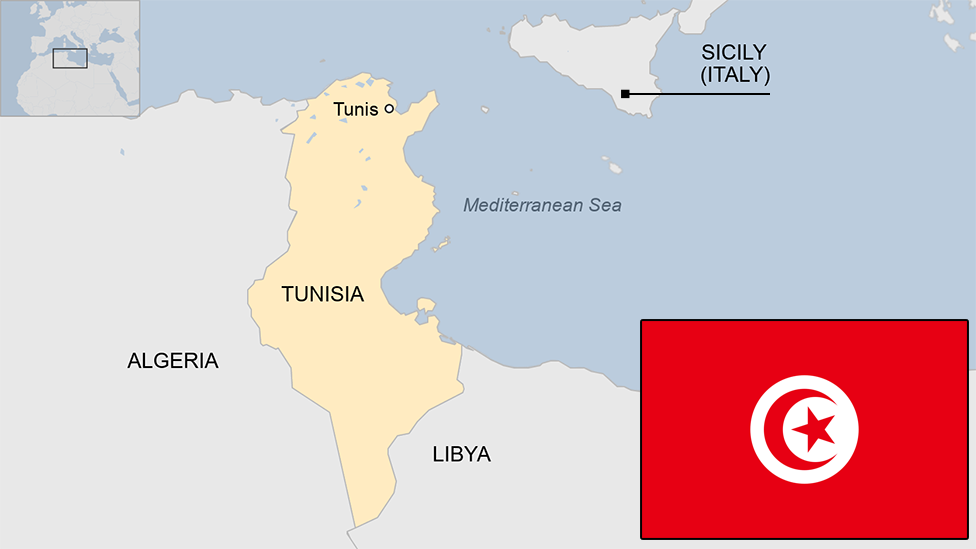Tunisia tourism: Ambassador urges FCO to relax travel warning
- Published
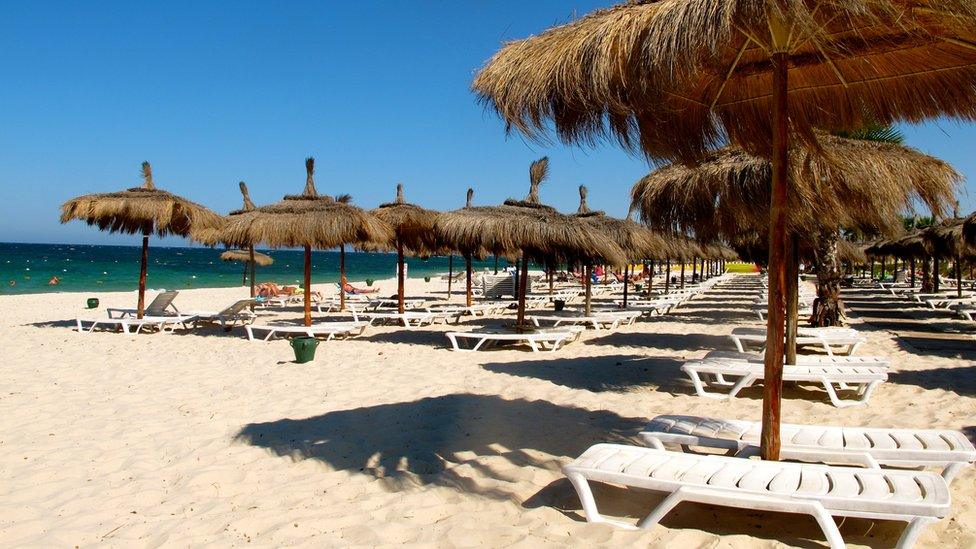
Beaches in Sousse have been all but deserted since last year's terror attack
Tunisian officials have urged the UK government to relax its advice warning against all but essential travel to the country, after a 90% drop in British visitors in the first part of 2016.
The guidance has been in place since 31 British holidaymakers were killed in two terror attacks in Tunisia in 2015.
The Tunisian ambassador to the UK said the government should take into account security improvements since last year.
The Foreign Office said the safety of British nationals was its main concern.
Thirty Britons were among 39 people killed when a gunman opened fire on tourists in a beach resort near Sousse on Tunisia's Mediterranean coast in June last year.
UK tour operators stopped all package holidays to Tunisia in July following a change in travel advice from the Foreign Office, external, which still says further terrorist attacks are "highly likely".
Why I am still holidaying in Tunisia
Three generations of Tunisian tourism
Industry is dead, says tour guide
Special report: Tunisia attack
However, ambassador Nabil Ammar, who himself comes from Sousse, told BBC local radio there was now a gap between the "perception of the level of security, and the real security on the ground".
"Every week terrorist cells are dismantled. Terrorists are arrested or neutralised. This should give a positive image, not a negative one.
"If you take statistics, you have much less chance to die in Tunisia or to have any harm in Tunisia than so many countries close to us."
Mr Ammar said he respected the UK Foreign Office, but it should not allow "the impression that this is not a safe country, and take into account all the progress made" in security.
He said he had never seen Tunisia's beaches so empty of tourists.
"Part of the solution against violence and terrorism is to have a good economy", he said, adding that he wanted the tragedy suffered by both the UK and Tunisia as a result of the terror attacks to "make us two people closer, not separate us at all".

'Letting terrorists win'
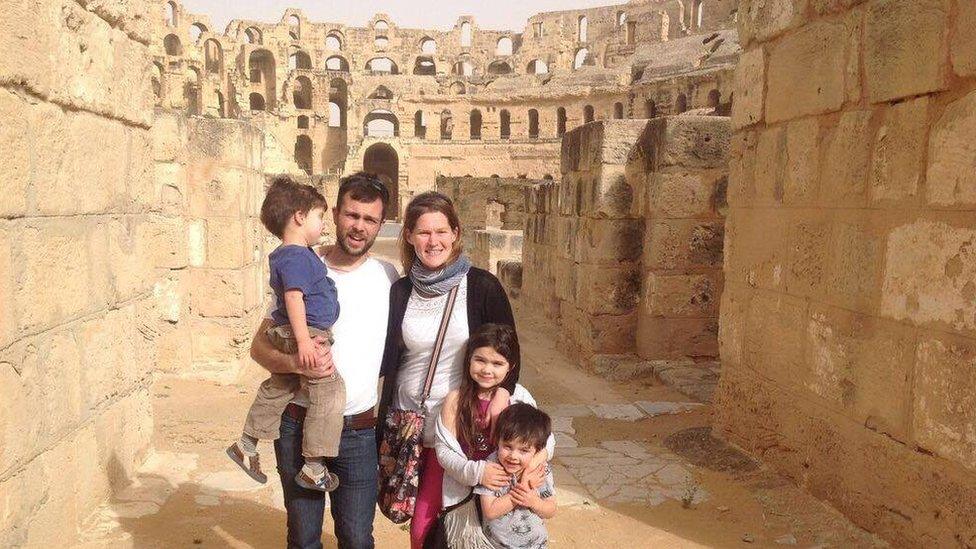
Matt Sullivan is from the UK, but has been living in Sousse since September 2015, with his wife and three children.
He says the downturn in tourism has had a big impact on Tunisia's economy.
"Tourists who do come here tell me that they feel very safe and looked after," he says.

Figures from the Tunisian Tourist Board show a fall of more than 90% in UK visitors for the first four months of this year compared with the similar period a year ago.
Between January and April 2015, there were 84,225 UK visitors to Tunisia, but just 5,980 in the first four months of this year.
Figures from the Office for National Statistics, external show the number of visits made to Tunisia by UK residents increased from 360,000 in 2011 to 440,000 in 2014.
This dropped to 275,000 visits in 2015, a decrease of 165,000 or 38% on the previous year.
While the current warning is in place, most travel insurance policies will be invalid for those who plan to travel to the country.
An Association of British Insurers spokesman said UK holidaymakers should always follow government advice.
"If you decide to go to Tunisia against government advice then you cannot expect your travel insurer to provide cover for you," he said.
'Half-empty beaches'
Raouf Jaiem, who runs Tunisian company Eden Tours, told the BBC that the travel advice had had a "huge impact" on the country's economy.
"Many hotels were working mainly with the British market. That means that since last summer they have lost 70% of their occupancy all year round and this has a huge impact on all these hotels," he said.
Peter Kirk, who runs company Tunisia First, told the BBC he had lost 50% of his business.
But he said his regular clients, who were aware of the travel advice, were still booking trips to Tunisia.
"They are not worried at all," he said.
"They know the Tunisian people, they love the country, they feel quite safe in tourist resorts where they go."
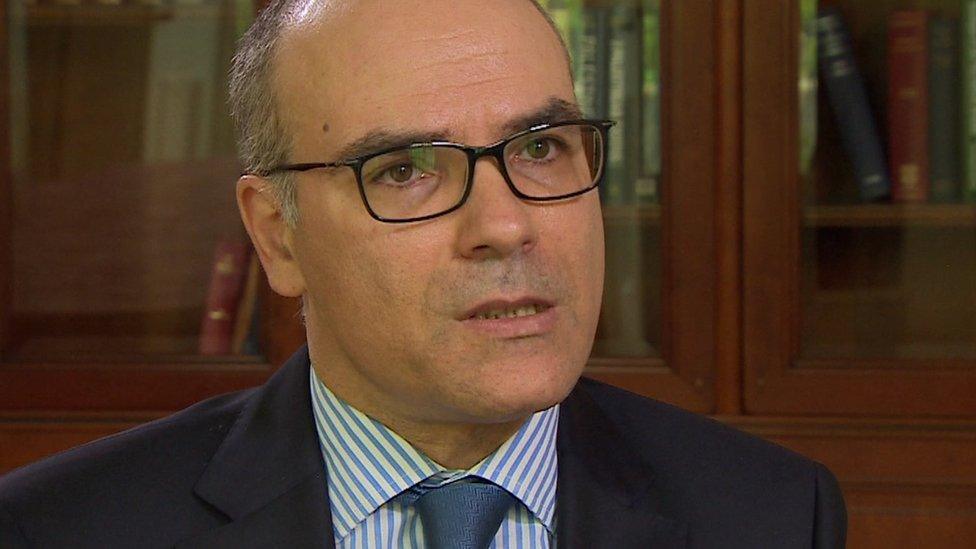
Nabil Ammar said the drop in tourism had badly damaged the Tunisian economy
BBC News reporter Emily Unia, reporting from Sousse, said: "While I have been here I have felt safe - there is a fairly visible police presence in Sousse, people say that security has increased a lot.
"But the truth is that the hotels and the beaches are half empty."
Nikki White, from the Association of British Travel Agents (Abta), said they understood the benefits of tourism in Tunisia, but the safety of British holidaymakers "must be the number one priority both for the Foreign Office and the British travel industry".
She said their members would restart trips to Tunisia once the Foreign Office was confident that the security situation has improved.
The Foreign Office says there are no direct flights between the UK and Monastir airport, to the south of Sousse, and Enfidah airport, to the north.
But there are daily Tunis Air flights from Tunis Carthage airport direct to London, and indirect daily departures with European carriers.
A Foreign Office spokesman said: "We know our travel advice can have a knock-on effect on trade and political considerations, but we don't let this influence the advice we give. The safety of British nationals is our main concern.
"We are working closely with the Tunisians to understand the terrorist threat better and to help them to strengthen measures to protect tourists further.
"Our travel advice is under constant review and we will change it as soon as the security situation permits."

Have you travelled to Tunisia recently? Would you consider going on holiday in Tunisia if the travel advice was changed? Email haveyoursay@bbc.co.uk, external with your stories.
Please include a contact number if you are willing to speak to a BBC journalist. You can also contact us in the following ways:
WhatsApp: +44 7525 900971
Send pictures/video to yourpics@bbc.co.uk, external
Tweet: @BBC_HaveYourSay, external
Send an SMS or MMS to 61124 or +44 7624 800 100
- Published24 May 2016
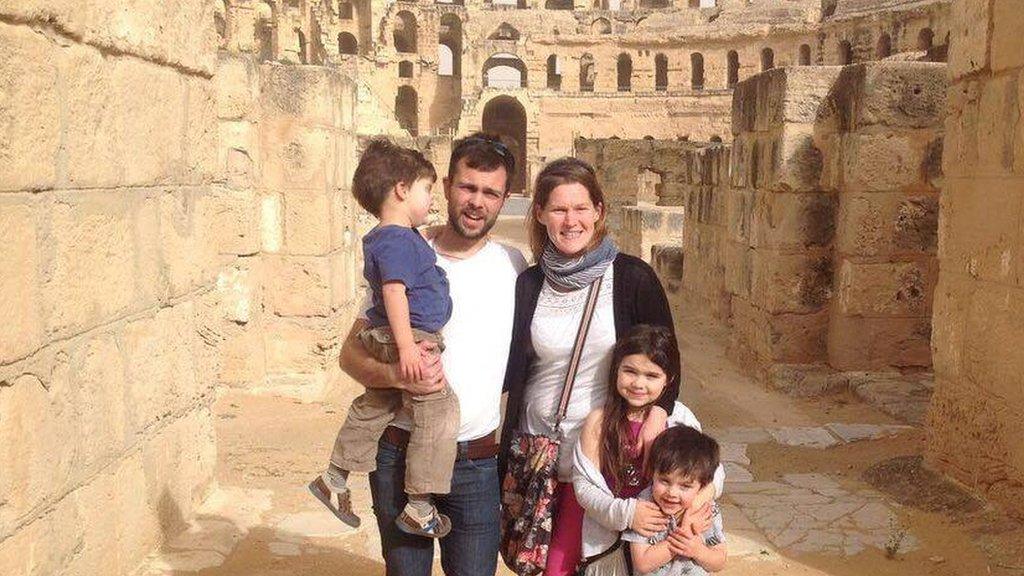
- Published18 January 2016
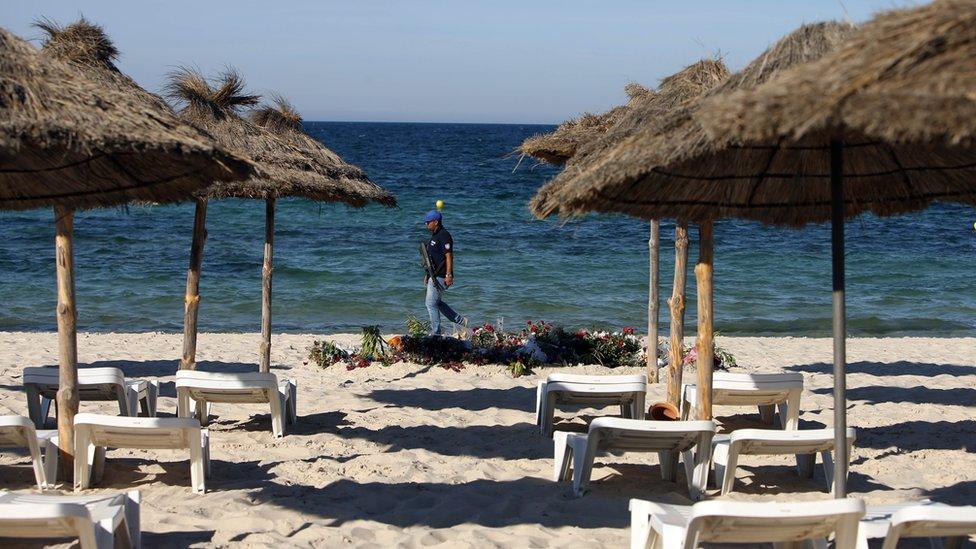
- Published16 July 2015
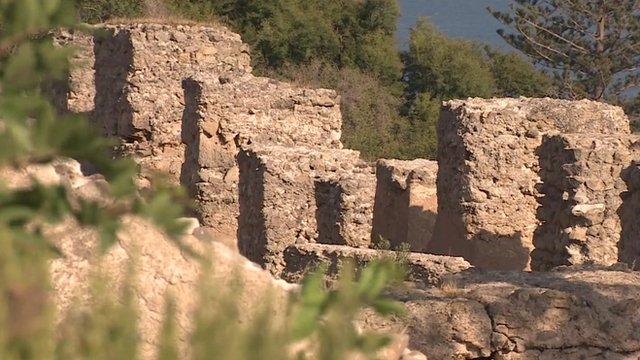
- Published11 July 2015
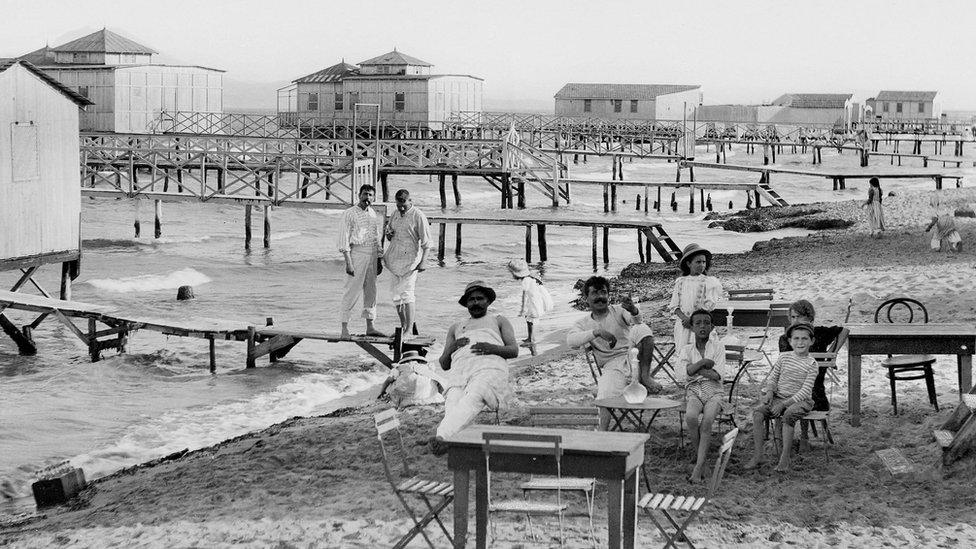
- Published3 July 2015

- Published9 July 2015
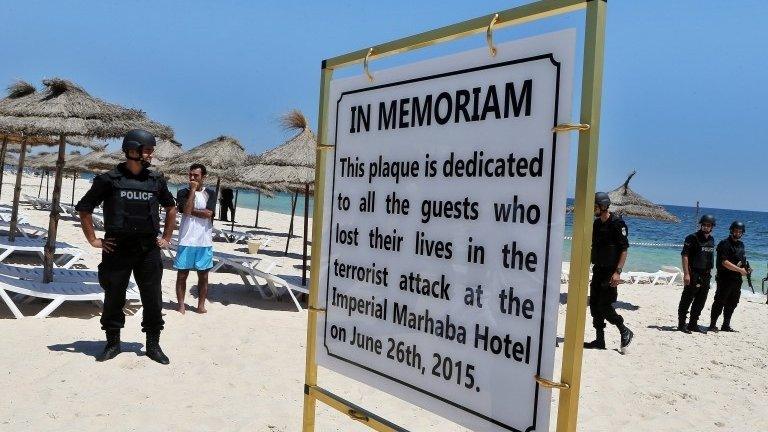
- Published29 June 2015
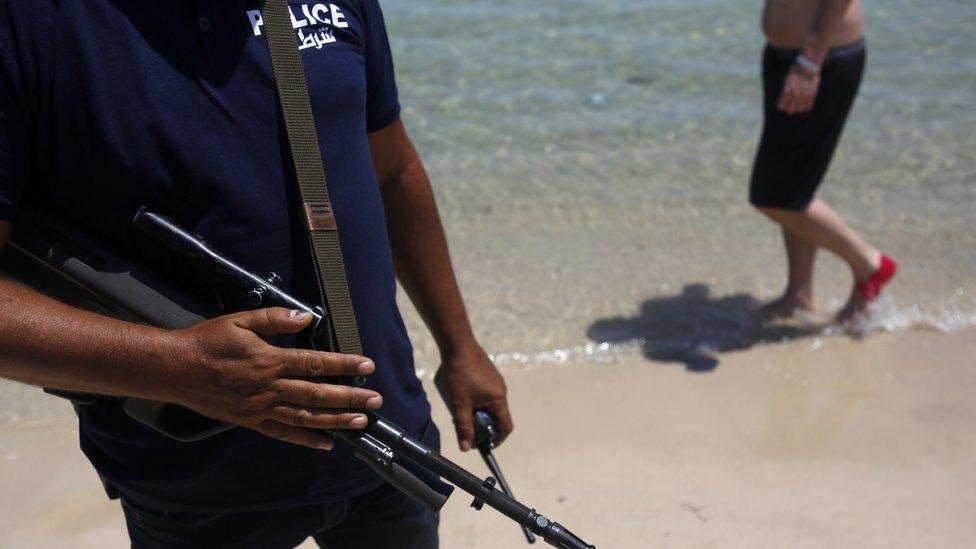
- Published9 October 2024
